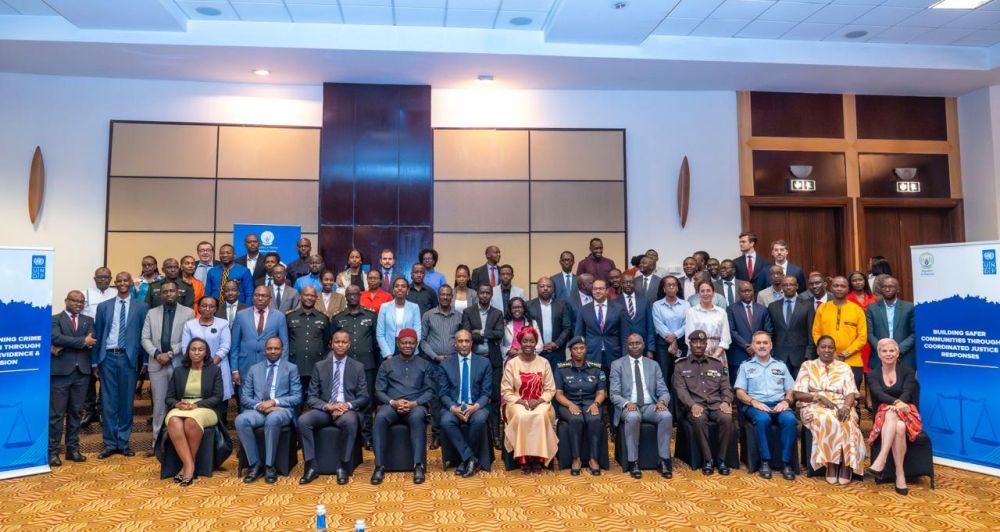Rwanda is taking a transformative approach to national safety, strategically framing crime prevention not merely as a security concern but as a foundational element of its broader development agenda. This paradigm shift emphasizes that ensuring public safety is a prerequisite for achieving sustained economic growth, reinforcing human rights, and building strong public institutions.
Minister of Justice Emmanuel Ugirashebuja highlighted this core philosophy at the Stakeholders’ Dialogue on Strengthening Crime Prevention Strategies held at the Kigali Serena Hotel. He articulated that “Preventing crime is not only a security objective but also a development imperative,” adding that every criminal act averted safeguards human rights, protects economic assets, and actively fosters public trust. T
he event, which included the UNDP and various judicial institutions, reviewed significant progress made since the 10th JRLOS (Justice, Reconciliation, Law, Order, and Security) Peer Review. Ugirashebuja pointed out that the government’s forthcoming National Crime Prevention Strategy is specifically designed to complement existing legal mechanisms, such as the Criminal Justice and Alternative Dispute Resolution (ADR) policies.
This shift in focus is being implemented across Rwanda’s law enforcement and correctional institutions. The Police, for instance, are moving towards a proactive prevention model, as explained by Deputy Inspector General Jeanne Chantal Ujeneza. This involves addressing the root causes of crime within communities, engaging directly with youth populations, and improving urban infrastructure to deter criminal activity. Furthermore, law enforcement is increasingly reliant on technology, utilizing tools like CCTV, drones, and data analytics to enhance its effectiveness.
The investigative branch is also undergoing a technological overhaul. Jean Marie Twagirayezu of the Rwanda Investigation Bureau (RIB) highlighted the establishment of cyber labs, advanced digital forensics, and the move toward intelligence-led policing to predict and prevent crimes before they occur.
For the government, long-term safety is inseparable from successful rehabilitation. Evariste Murenzi from the Rwanda Correctional Service (RCS) detailed the comprehensive programs within correctional facilities that focus on reducing recidivism. “These efforts emphasize vocational training, conflict resolution, and restorative justice, aiming to equip inmates with the skills and psychological stability necessary for successful reintegration into society,” He said.
Minister Ugirashebuja concluded that this comprehensive approach, requiring coordinated efforts, evidence-based policies, and crucial community collaboration, proves definitively that safety and sustainable development go hand in hand, positioning Rwanda as a global exemplar in this field.





